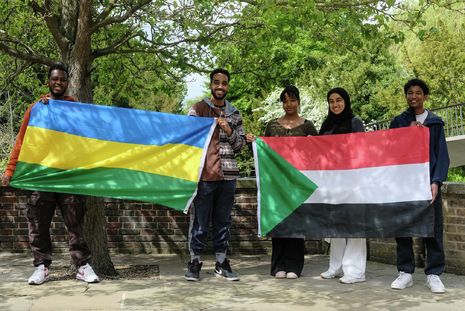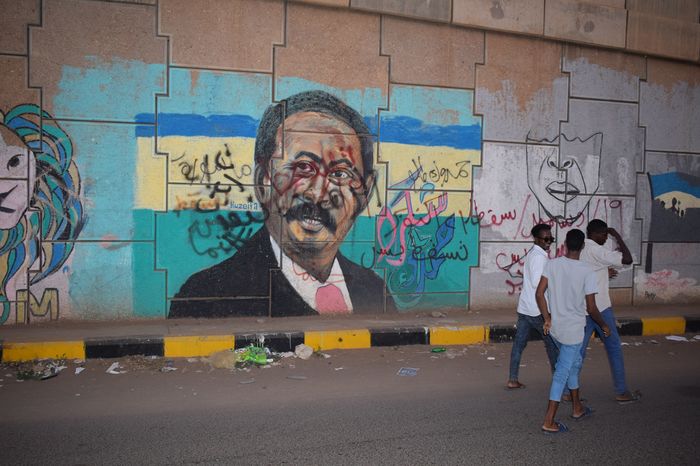‘Just deal with it’: Sudanese students ignored by University
Sudanese students at Cambridge label the university’s lack of response ‘a structural issue’

Sudanese students with family members currently at the centre of conflict have expressed disappointment at the lack of support received from the University. In conversation with Varsity, students reported that “on a University level no one has reached out.” They described this response as predictable, saying “Cambridge isn’t really the place where you would expect them to be proactive.”
The power struggle between the Sudanese Army and the paramilitary group, the RSF, resulted in fighting breaking out in Sudan’s capital, Khartoum, in April. Recent figures have shown that the conflict has claimed between 600 to 1,000 lives (including civilians) and left over 5,000 people wounded. The UN estimates that nearly 200,000 people had fled the country, with a further 700,000 being internally displaced.
Despite the strain that this has placed on Sudanese students, the University has not reached out to offer support or acknowledgement. Cambridge’s Sudanese Society, in a collaboration with other UK universities’ Sudanese Societies, shared their feelings on an Instagram post: “None of us can bear to pick up our phones, for fear of the worst news. But none of us can look away from them either.”
Tarig, a Physics PhD student at Pembroke, told Varsity that “a little gesture” can have a big impact. He expressed his desire to see “more information being shared by the wide institution and just an email talking about our Sudanese colleagues and their families”, especially as “it’s something that can raise awareness among the wider community as well”.
However, reported attempts to receive support from the University have been quickly dismissed. Razan, the Sudanese Society’s treasurer and a politics student at Selwyn, concerned about how the situation would affect her performance in her end of year exams, emailed the University to notify them of the situation. She told Varsity that they responded by telling her to get a note from her GP, so “I haven’t tried anything again”.
Razan also emailed one of the pro-vice-chancellors who had emailed students when the war in Ukraine broke out in February 2022, asking if any similar actions were going to be taken for Sudan. She told Varsity: “I didn’t get a response.”
She continued by saying that this reflects a “structural issue” of a UK-wide “bias towards Africa” that believes that “Africans are used to war, so it’s fine.” In comparison, “if something were to happen in Europe it’s an exceptional case of ‘Oh my god! Europeans don’t deserve this!’” In response to the war in Ukraine, the University published ‘Cambridge University Help for Ukraine’, which included a hardship fund to support affected Cambridge students and fully funded residential placements for Ukrainian academics and students. One student felt that Cambridge University’s attitude towards its Sudanese students was for them to “just deal with it”.
The collegiate structure of the University has meant that there has been a disparity in Colleges’ responses. At Selwyn, the College Master personally reached out to Razan, offering to circulate links and help raise awareness of the conflict in Sudan. Selwyn JCR also donated £200 to Razan’s GoFundMe page – a collaborative effort by Sudanese Societies in universities across the UK that has raised over £20,000 to support hospitals and provide medical supplies within Khartoum.
Aala, the Sudanese Society President and politics student at Trinity Hall, has managed to get her JCR to donate. Students at Fitzwilliam, Pembroke and Sidney Sussex told Varsity that they have had no contact or support from their colleges.
Due to a lack of action from the University, Sudanese students in Cambridge are taking it upon themselves to act. From fundraising, to raising awareness through College JCRs, Aala told Varsity that it is so important “to just try and educate yourself” as “it’s a lived, real-life experience.”
When approached for comment, a University spokesperson said: “The University is saddened by the violence in Sudan and its effects on any in our community who have family and friends caught up in the conflict. Any students or staff who are in need of counselling support can find advice on the student and staff counselling service websites. Students can also access support by speaking to their College tutor in the first instance, and concerned members of staff can talk to their head of department, as well as departmental wellbeing advocates, who can signpost to various support services.”
 News / Uni Scout and Guide Club affirms trans inclusion 12 December 2025
News / Uni Scout and Guide Club affirms trans inclusion 12 December 2025 News / Cambridge Vet School gets lifeline year to stay accredited28 November 2025
News / Cambridge Vet School gets lifeline year to stay accredited28 November 2025 Science / Did your ex trip on King’s Parade? The science behind the ‘ick’12 December 2025
Science / Did your ex trip on King’s Parade? The science behind the ‘ick’12 December 2025 News / Cambridge study finds students learn better with notes than AI13 December 2025
News / Cambridge study finds students learn better with notes than AI13 December 2025 News / Pembroke to convert listed office building into accom9 December 2025
News / Pembroke to convert listed office building into accom9 December 2025








